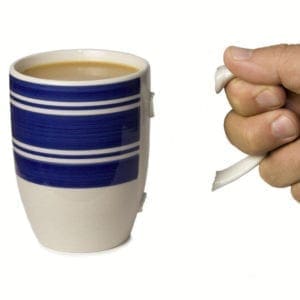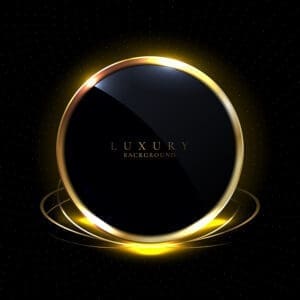 ÒAll the world’s a stage,Ó Shakespeare famously wrote, ÒandÊallÊthe men and women merely playersÓ.
ÒAll the world’s a stage,Ó Shakespeare famously wrote, ÒandÊallÊthe men and women merely playersÓ.
In many respects, guest experience management is strikingly similar to a stage production. To bring each scene to life, the cast and crew Ñ and, also, the set design and technology Ñ need to come together in a highly-orchestrated manner. Every aspect of the script needs to be meticulously directed and rehearsed. And the performance needs to begin anew for every new audience.
Like a stage production, a hotel stay should present guests with highly engineered experiences. These experiences should engage the senses and create strong, visceral impressions Ñ preferably, ones that are unique to the property (or at least not readily available elsewhere). These experiences should be repeatable and consistent, and should provide a high level of excellence from start to finish.
The good news, according to The 2017 Smart Decision Guide to Hotel Guest Experience Management (currently available for complimentary access), is that nearly two-thirds (63 per cent) of large and full-service hotels, and more than half (51 per cent) of midsize and limited service hotels, have been either ÒsuccessfulÓ or Òvery successfulÓ in improving the quality of the guest experience in recent years.
This success is due, in large part, to the implementation of next-generation hotel technology solutions.
It is imperative that, once implemented, the new technology solution Ñ whether a next-generation Property Management System (PMS), a department-specific module (spa, valet, golf, etc.), a service optimization/guest response management solution, an advanced housekeeping management solution, and/or a CRM solution Ñ will achieve the desired objectives with respect to platform capabilities.
To that end, the following are six questions that hoteliers may wish to explore with solution providers before making a purchase decision.
1. Does the solution readily integrate with other technologies?
Seamless technology integration, best achieved through an open API model, is the name of the game when it comes to optimizing hotel operations as well as improving the overall guest experience. Technology interoperability across hotel functions and departments is key to creating unified platform capabilities and a unified view of guest relationships.
Guest profile data housed in the PMS needs to be continuously updated with transaction and interaction data, from retail shop and restaurant food and beverage purchases to maintenance, housekeeping, concierge and valet requests. All data needs to be integrated into the common flow.
The goal is to connect to guests in all the ways they want to interact, connect to staff members and service teams so they can service guest request, and connect to all systems to streamline workflow and provide better and more personalized offers and services.
2. Does the solution offer flexibility in performance reporting?
Hoteliers may have special reporting needs. Most solutions come equipped with a large number Ñ in some cases, dozens Ñ of standard dashboards and reports that should meet most hoteliers’ day-to-day performance management requirements. That said, not all data queries can be anticipated in advance.
According to The 2016 Smart Decision Guide to Hotel Property Management Systems (currently available for complimentary access), 87 per centÊof hoteliers ranking the need to gain access to data and insights from the PMS and other technology solutions as ÒimportantÓ or Òvery importantÓ for the purpose of identifying new opportunities to enhance the guest experience. It stands to reason that they would want to ensure that any solution under consideration is able to meet these expectations.
3. Is the solution mobile-optimized?
Mobility has become an important enabler of the guest experience. Giving all staff members instant access to information through their mobile devices significantly reduces guest wait times and minimizes guest inconvenience. Employee-facing mobile capabilities, including check-in and check-out, enable staff to better service guests on the go.
According to the research, 86 per centÊof survey respondents agree that employees at all levels and across all parts of the organization require mobile access to be most effective in their jobs. This includes managers who need to be able to remotely monitor operational performance and track productivity.
4. How long will it take for problems to be resolved?
Buyers of guest-centric solutions should have clear expectations around customer support and problem resolution as well as the training that may be needed to get front desk and other guest-facing and operations staff up to speed on the new solution.
More than three-quarters (81 per cent) of hoteliers agree that user training ranks as a key success factor in ensuring that a hospitality solution is utilized as effectively as possible. Does the solution provider or a certified subcontractor offer adequate training? Does it offer online troubleshooting and diagnosis should technical issues arise? Does it offer local in-person service and support?
5. What is the total cost of ownership? Are there ÒhiddenÓ costs?
Next-generation solutions tend to be less expensive and require less up-front investment than their predecessors. There are many reasons for the shift to increased affordability, including the fact that installation is generally less complex and hardware less expensive compared to, say, a decade ago.
Cloud-based solutions eliminate the need for on premise servers and open APIs reduce integration costs. Hoteliers would be wise to look for platforms that use an open API to augment their core offering, with an integration layer that enables easy connectivity.
6. What is the solution provider’s track record for stability, reliability and continuous innovation?
As with any technology solution purchase, reputation and customer satisfaction are important factors in the decision-making process. Nobody wants to purchase and implement a hospitality technology solution that falls short of expectations due to known shortcomings in stability, reliability or promised benefits.
No input may be more important to the buying decision than that which can be gleaned from existing clients, preferably lodging properties that share some commonalities in terms of size, typography and existing technology infrastructure.
A solution provider or consultant may be willing to provide one or more client references. And some clients, particularly those operating in non-competitive markets, may be willing to share their experiences and perhaps even disclose results in terms of percentage increases the solution has helped enable them to achieve in RevPAR or, perhaps even more importantly, improvement in guest satisfaction metrics such as net promoter score Ð e.g., moving from a low score over the past few years of, say, 60 to a high score of, say, 65. Client testimonials and success stories can also be valuable sources of information.
By Jeff Zabin
 Jeff Zabin is Research Director at Starfleet Research, which benchmarks best practices in hospitality technology. Recent titles include The 2016 Smart Decision Guide to Hotel Property Management Systems, The 2016 Smart Decision Guide to Hospitality Revenue Management and The 2016 Smart Decision Guide to Restaurant Management and POS Systems. A globally-recognized market research executive, Mr Zabin’s bestselling business books on data-driven marketing improvement have been translated into more than a dozen languages. He has also written hundreds of popular benchmark reports and articles in leading trade publications across multiple industry sectors, including hospitality.
Jeff Zabin is Research Director at Starfleet Research, which benchmarks best practices in hospitality technology. Recent titles include The 2016 Smart Decision Guide to Hotel Property Management Systems, The 2016 Smart Decision Guide to Hospitality Revenue Management and The 2016 Smart Decision Guide to Restaurant Management and POS Systems. A globally-recognized market research executive, Mr Zabin’s bestselling business books on data-driven marketing improvement have been translated into more than a dozen languages. He has also written hundreds of popular benchmark reports and articles in leading trade publications across multiple industry sectors, including hospitality.



















